Coronavirus: More restrictions in new year 'inevitable' in NI
- Published
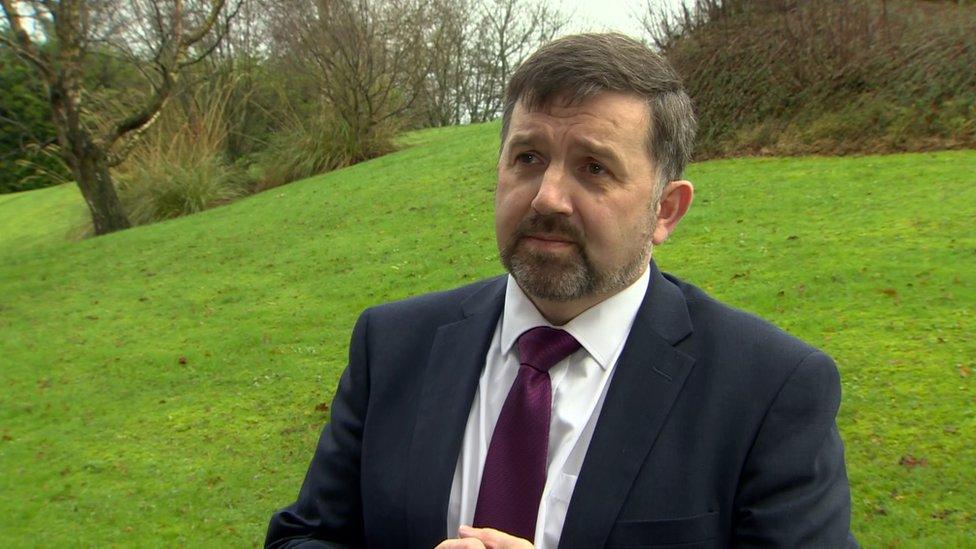
More restrictions at the start of the new year are "inevitable," NI Health Minister Robin Swann has said.
Speaking on Friday, he said the severity of those restrictions would "depend on people's actions over the next few weeks".
A two-week limited lockdown, which was imposed on 27 November, ended at 23:59 GMT on Thursday.
Mr Swann urged the NI public use the time "wisely" and not be careless as restrictions ease.
He said he understood the "frustration" of those families who have not been able to see loved ones in care homes.
Some care homes 'reluctant'
"My department has put in guidance, advice and funding for care homes to allow safe visiting and the development of care partners," Mr Swann told BBC News NI.
The Department of Health has advised homes to allow one nominated member per family to act as a care partner and to be allowed to visit their relative.
But some care homes have expressed concern at the plan and have refused to allow visits.
"Some homes can deliver it. What I can't understand is why some homes are reluctant or unable to do so," he added.
He said he had asked a team of senior officials to look at what steps must be taken to "make sure those families can visit loved ones over the Christmas period."
"As a department we will be there to support and push those who need forceful encouragement," he said.
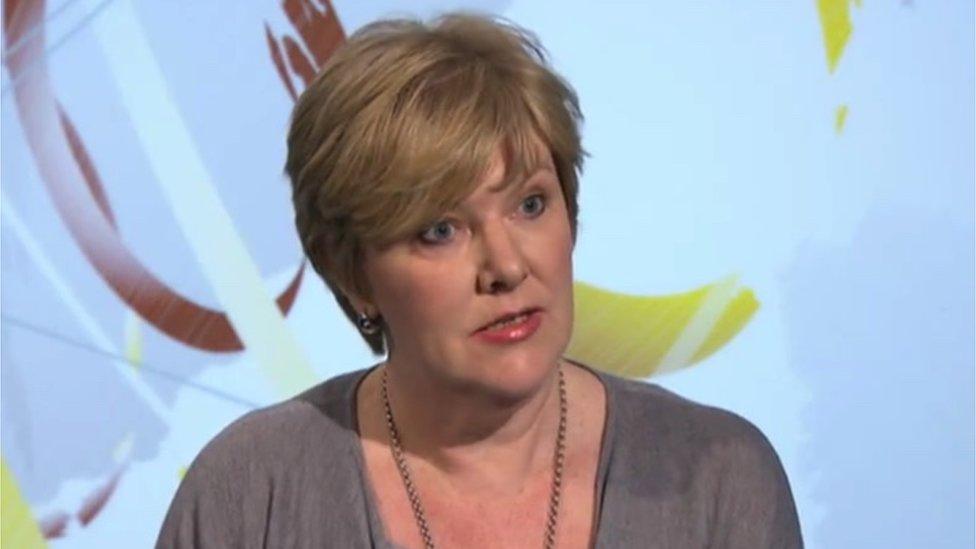
Pauline Shepherd said measures for care home visiting needed to be aligned with risk level
The Independent Health and Care Providers (IHCP), a group representing the industry, said it was unclear what homes were not able to comply or whether those homes fell under their umbrella.
Chief Executive Officer Pauline Shepherd said there had been only minimal interest from families in the care partner idea - that families would rather visit their loved ones than provide care.
IHCP has also highlighted that care homes are required to cancel visiting when there is an outbreak at a home and pointed out that there are currently 107 homes dealing with an outbreak.
It has said it fully supports the need for visiting but that it must be balanced with risk mitigations.
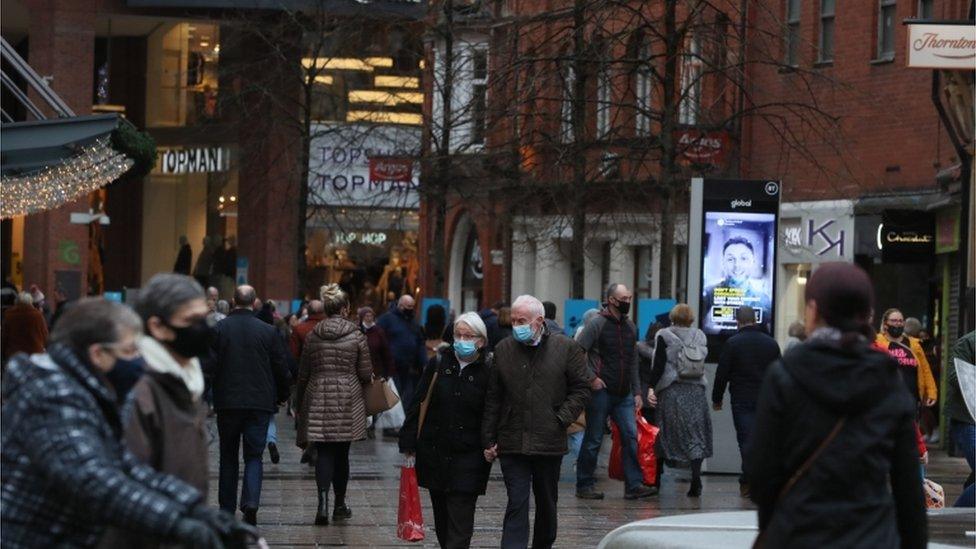
Shoppers were back on Belfast's streets on Friday
Self-isolation for contacts of people with confirmed coronavirus will be shortened from 14 to 10 days across the UK from Monday, 14 December.
The Northern Ireland Covid-19 apps -StopCOVID NI app and COVIDCare NI - will be updated to reflect the changes.
Mr Swann said this followed advice from the four chief medical officers based on the evidence as to how the virus is progressing.
The head of health protection at the Public Health Agency, Dr Gerry Waldron, said the organisation is preparing for another rise in Covid-19 cases in the new year and may need to hire more staff.
"We could well have an additional 100 people working, we could have more than that, depending on the people who come forward.
"I would sincerely hope we won't need them, but we are making those preparations."
'Positive tests'
The number of Covid-related deaths registered in Northern Ireland has risen again in the latest weekly figures.
A total of 98 deaths were registered in the week up to Friday 4 December, according to the Northern Ireland Statistics and Research Agency (Nisra).
That is 17 more deaths than the previous week.
It brings Nisra's total of registered Covid-related deaths to 1,480 since the beginning of the pandemic.
Nisra's figures are based on mentions of the virus on death certificates, so people may or may not have previously tested positive for the virus.
By comparison, the Department of Health's daily figures are based on a positive test result having been recorded.
On Friday, the department reported 12 coronavirus-related deaths, bringing its total to 1,111.
There were 538 more confirmed cases of the virus, meaning there have been 57,257 positive tests in Northern Ireland.
Care home deaths
Its comparative number of deaths for Friday 4 December was 1,039.
Of the 1,480 deaths recorded by Nisra, 884 were of people in hospital, including 127 people normally resident in care homes.
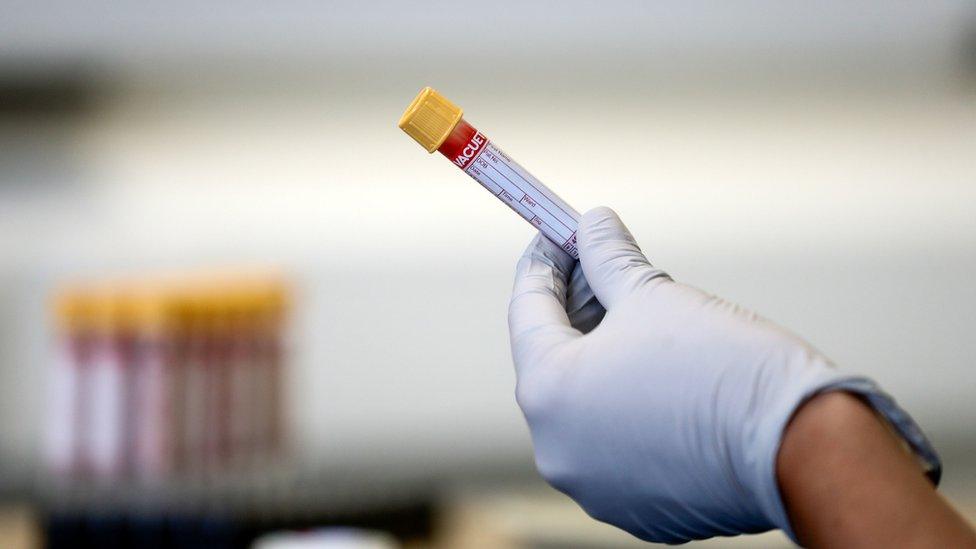
Nisra's figures consist of deaths where Covid-19 is mentioned on the death certificate
Taking that figure, and the 503 who died in care homes, it means care home residents account for just over two-fifths of all Covid-19 related deaths (42.0%).
Other deaths were recorded by Nisra in hospices (0.6%) and residential locations (7.0%).
Deaths in care homes and hospices involved 124 separate establishments.
People aged 75 and over account for just over three-quarters of all Covid-19 related registered deaths (77.4%) in the year so far, according to Nisra.
A quarter (25.0%) of all Covid-19 related registered deaths have been of people with an address in the Belfast council area.
The provisional number of all deaths for the week ending 4 December was 387.
That is 39 more than the previous week and 65 more than the five-year average of 322.
Excess deaths are those above what would normally be expected at the time of year, averaged over five years.
Nisra found 1,854 excess deaths have been registered in the past 36 weeks.
Outbreak at meat plant
Separately, a meat plant in Londonderry has partially closed due to a Covid outbreak.
Foyle Meats said it had become concerned when a number of its staff tested positive for the virus.
Mass testing of workers last week found a number of others who were positive but not showing symptoms.
As a result, it said it had taken the decision to close a number of areas in the plant.
Workers testing positive will be asked to self-isolate for 10 days and their close contacts for 14 days.
It is one of a number of meat plants forced to close since the start of the Covid pandemic.
They are normally fully operational once staff return after deep cleans.
Related topics
- Published4 December 2020
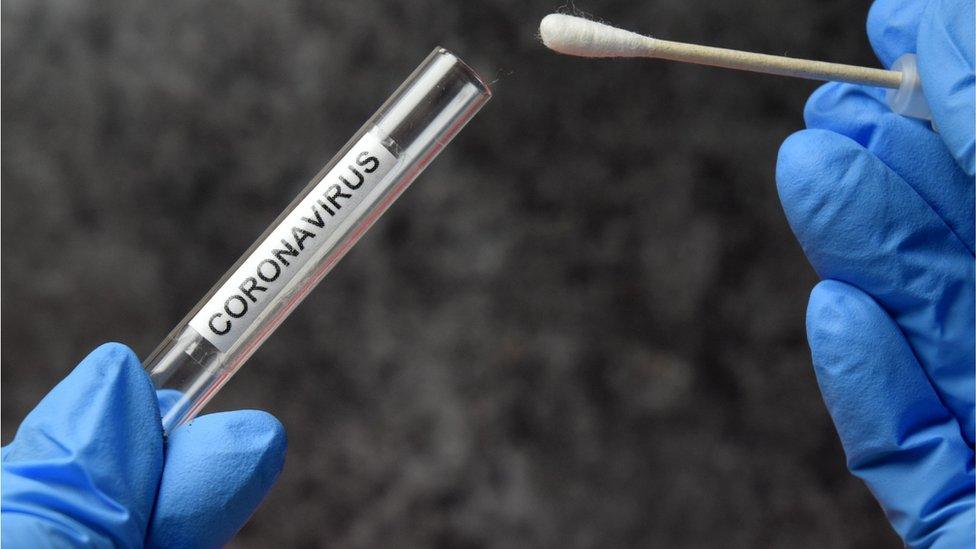
- Published27 November 2020

- Published20 November 2020
